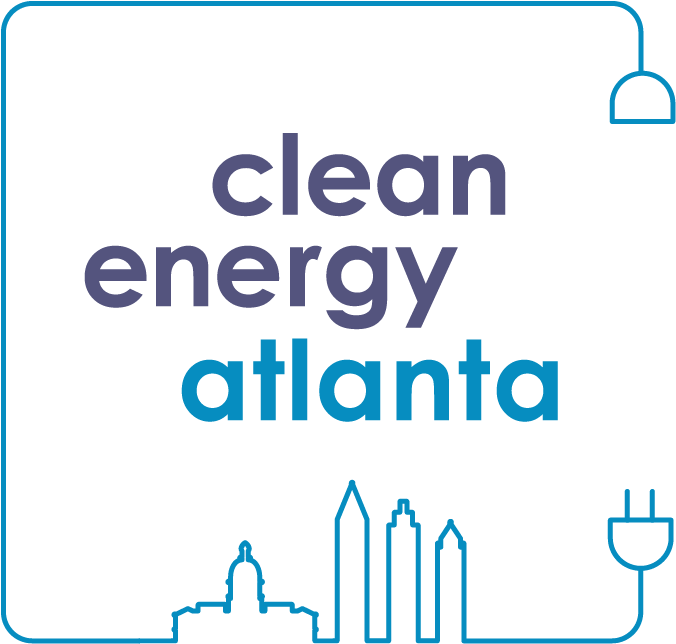
Resources
Solar PV Permitting for Residential & Commercial Properties
For information on solar PV permitting for residential & commercial properties, visit the City of Atlanta’s Office of Buildings Solar PV Installation page.
Electric Vehicle Readiness Ordinance
Effective January 1, 2026, the City of Atlanta’s 2025 EV Readiness Ordinance (25-O-1011) mandates the inclusion of electric vehicle infrastructure in new construction and major renovations across commercial, multifamily, and residential developments. It introduces three defined tiers: EVSE Capable (dedicated electrical panel capacity and installed conduit), EVSE Ready (installed branch circuit, raceway, and receptacle), and EVSE Installed (a fully installed and operable charger). The ordinance requires commercial and multifamily developments to include at least 20% EVSE Installed spaces and 20% EVSE Capable spaces, while new single-family and two-family dwellings must provide one EVSE Ready parking space. City-owned projects must meet higher thresholds: 25% EVSE Installed and 50% EVSE Capable. The ordinance applies to both parking structures and surface parking lots, and includes detailed fire safety provisions such as emergency shutoff switches, equipment spacing, and ventilation requirements for enclosed garages. For more information, view the full ordinance here.
Permits
For permitting information, visit the City of Atlanta’s Office of Buildings homepage
City of Atlanta Alternative Fuel Fleet Conversion Plan
In 2018 with support from the Electrification Coalition, the City of Atlanta drafted the City’s first fuel conversion plan.
EV Readiness Workbook
Check out Atlanta’s EV Readiness Workbook
Commercial Buildings Energy Efficiency Ordinance
If you are looking for information on how to comply with Atlanta’s Commercial Buildings Energy Efficiency Ordinance, visit Atlanta Building Efficiency (atlantabuildingbenchmarking.com) or contact buildingefficiency@atlantaga.gov
Atlanta Energy Benchmarking Map Pilot
The Atlanta Energy Benchmarking Map is an ongoing collaborative effort between the City of Atlanta Mayor's Office of Sustainability & Resilience and City of Atlanta Department of City Planning GIS Team! See it for yourself at: https://gis.atlantaga.gov/CBEEO/
This map displays:
1) ENERGY STAR Score (higher score the better)
2) Energy Use Intensity (lower value the better)
3) The pink layer displays the U.S. Department of Energy (DOE) disadvantaged communities; the highest energy burdened areas of >5%
Extreme Urban Heat Resources
1) The Smart Surfaces Benefit-Cost Analysis tool, provided by the Smart Surfaces Coalition, you can model the heat mitigation, stormwater reduction, health, climate, energy, and other financial benefits from converting some or all of Atlanta’s surfaces to Smart Surfaces. Based on high-resolution surface mapping and expert guidance, the tool suggests default low, moderate, and extensive adoption levels for potential implementation. You can also customize these scenarios based on local climate plans, policy goals, or initiatives.
2) Smart Surfaces Policy Tracker: The Smart Surfaces Policy Tracker can help you discover model ordinance language from peer cities (including the City of Atlanta’s Cool Roof Ordinance), compare regulatory metrics in different communities, and understand the landscape of Smart Surfaces policy in the U.S.
3) City of Atlanta’s 2023 Heat and Flood Risk Assessment
4) Sign up for NotifyATL - The City of Atlanta’s Emergency Alert System




